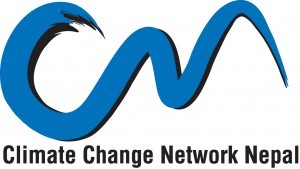Nepal became a party of UNFCCC in 1992 and adopted Kyoto protocol in 1997 at the 3rd Session of the Conference of the Parties (COP) along with many other nations. Than after eight years the government formally endorsed this decision. In the year 2003, a small group of civil society organization based in capital started a dialogue with the government about the benefit of being party to climate change convention and its associated protocol. The main attraction at that time was Clean Development Mechanism under the Kyoto protocol. This small group was successful to convince the government and as a result the government endorsed the Kyoto protocol on December 2005.
The group with its first success in establishing the climate change issue at the national level, was later formally named itself as “Climate Change Network Nepal (CCNN)”. This makes CCNN one of the oldest and pioneer networks on Climate change in Nepal. The network in its initial phase was very active in supporting the government as and when required. Gradually, the group expanded and ultimately it succeeded in bringing unique strengths of different agencies together.
At present, CCNN is working as a semi-formal network with its guiding document endorsed by its general consensus on 2009. It receives voluntary support from its member agencies in order to meet their operational and other incidental expenses. Till 2007, WWF was supporting the network as a secretariat and from 2007 and onwards Clean Energy Nepal (CEN), a non- profit organization has been handed over the responsibility as a secretariat. In-spite of their shapes and forms, this network is successful in establishing the ‘climate change’ issue in Nepal.
The network has been regularly providing effective support to Government of Nepal during different important global conferences. Members from the network have also been supporting the government team being in the national delegation during meetings. With this, CCNN has also regularly organizing Pre and Post consultation workshops before and after any important global climate conferences. These consultations have become very useful in raising the voice from grass root levels to national and international level and defining the national positions. The outcomes of the consultations have been helpful to strategize national priority issues and agendas for the climate negotiations. Likewise, the post consultations workshop has become best tool to get information about global negotiations for media, people working on policy and advocacy at national level and other key stakeholders.
Beside this, CCNN has been actively coordinating national level advocacy campaign particularly focused to negotiations. Towards the end of November 2009, during the Copenhagen Climate Summit, CCNN with other civil society network launched a national campaign named “Stop Melting Life: Save the Himalayas.” The main objective of this campaign was to heighten the global media attention in order to highlight the issue and demand world leaders to reach a deal addressing the plight of poorest and most vulnerable communities around the world and also to increase the level of public awareness on Climate Change issues. The campaign activity includes, submitting petition to embassies of developed countries, mass demonstrations and rallies and concluded with the grand musical event and was very well received by the National and International media.
CCNN with the support from its members has also been working as a think-tank, there are also many evidences of its inputs being addressed and acknowledged to the policy making process. During the NAPA making process, the network members have been actively engaged equally on all its thematic areas. Suggestions forwarded by the network on NAPA and Climate Change policy have also been well received by the government. As Nepal is also one of the nine Pilot Project for Climate Resilience (PPCR) recipient countries from the World Bank, the loan component of this funding become controversial in the country. At this moment, CCNN took the opportunity to facilitate the process by organizing a stakeholder consultation. The main objective of the program was to bring concerned stakeholder representing different institutions and discuss on the PPCR and its related issue in Nepal.
CCNN with its benefit of being one of the oldest and pioneer network on climate change has been coordinating and facilitating the process at central level with the partner networks such as: NGO group on Climate change with its diverse outreach at grass-root level, Nepalese Youth for Climate Action (NYCA), an out-of-the-ordinary platform for youth working actively despite of limited resources and capacity. Beside this, there is also a coordination body of International organization working on climate change in Nepal names as “Association of International Non governmental Organization – Climate Change Task Force” (AIN-CCTF) and National members of Climate Action Network South Asia (CANSA). There are numerous examples of these groups working together while advocating on national agenda, a joint submission to the Prime Minister of Nepal before COP15 and SAARC meeting were some of them.


